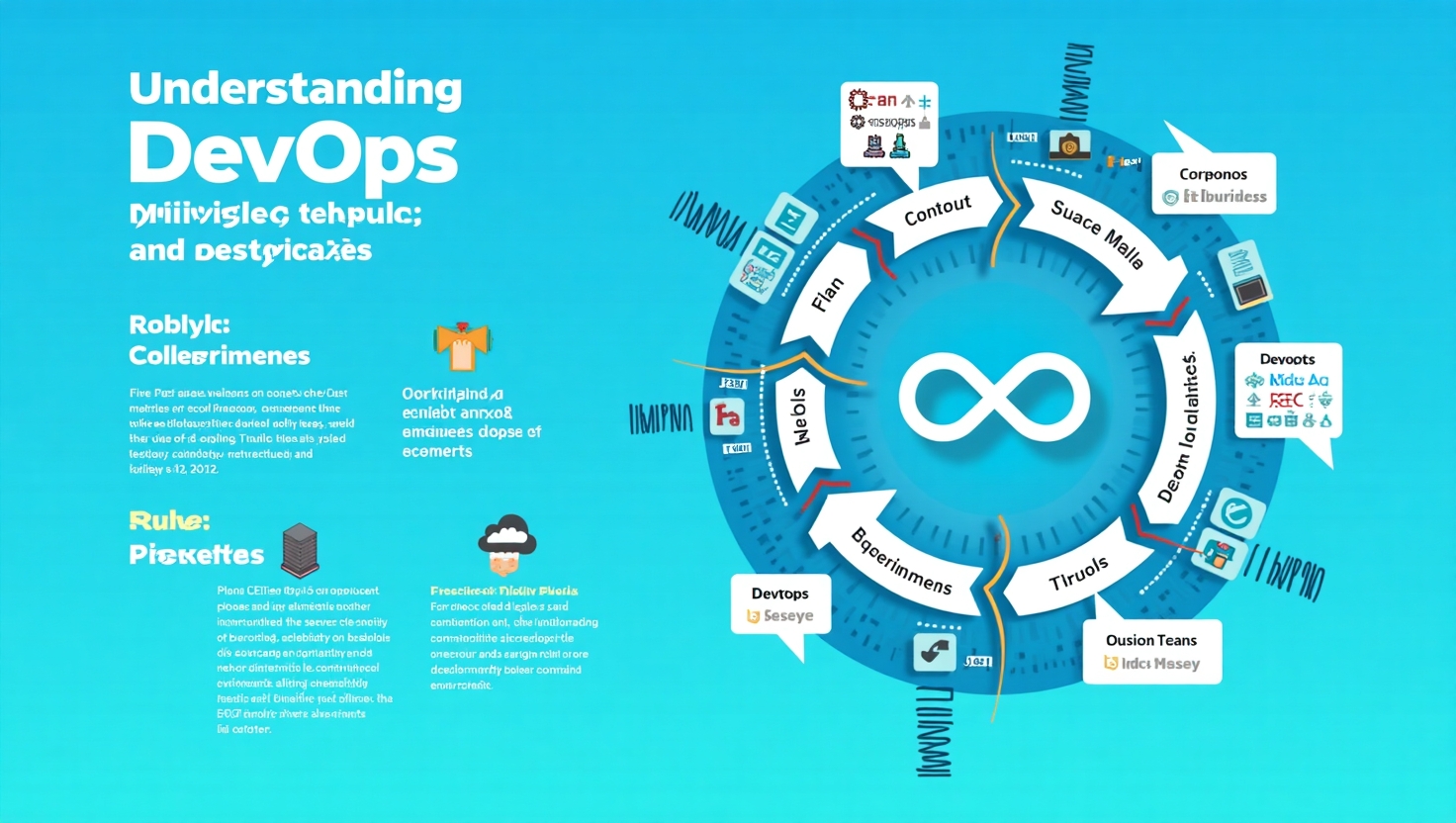Understanding DevOps: Principles, Benefits, and Best Practices
 Parth
Parth
Introduction
In today’s fast-paced digital world, businesses are continuously striving to improve their software development and deployment processes. DevOps has emerged as a revolutionary approach that bridges the gap between development and operations teams, fostering collaboration, automation, and efficiency. This article explores the principles, benefits, key tools, and best practices of DevOps, providing a comprehensive understanding of why it is essential for modern software development.
What is DevOps?
DevOps is a cultural and technical movement that combines software development (Dev) and IT operations (Ops) to enable organizations to deliver applications and services at high velocity. It emphasizes collaboration, continuous integration and delivery (CI/CD), infrastructure as code (IaC), monitoring, and automation to enhance software quality and deployment speed.
Key Principles of DevOps
Collaboration and Communication: DevOps fosters a culture of shared responsibility, encouraging developers, testers, and operations teams to work together seamlessly.
Automation: Automating repetitive tasks, such as code integration, testing, and deployment, reduces human errors and increases efficiency.
Continuous Integration and Continuous Deployment (CI/CD): This approach ensures that code changes are automatically tested and deployed, leading to faster releases.
Infrastructure as Code (IaC): Infrastructure is managed through code, enabling consistency, scalability, and ease of management.
Monitoring and Feedback: Continuous monitoring of applications and infrastructure helps in identifying and resolving issues proactively.
Benefits of DevOps
1. Faster Time to Market
By automating workflows and improving collaboration, DevOps accelerates the development and deployment process, allowing organizations to release software updates faster.
2. Improved Quality and Reliability
Continuous testing and monitoring reduce the chances of bugs and ensure high-quality releases.
3. Enhanced Security
By integrating security practices (DevSecOps), organizations can identify vulnerabilities early in the development cycle.
4. Cost Efficiency
Automation and efficient resource utilization lead to reduced operational costs.
5. Scalability and Flexibility
DevOps enables businesses to scale their infrastructure and applications effortlessly based on demand.
Key DevOps Tools
To successfully implement DevOps, organizations use a variety of tools across different stages of the development lifecycle:
Version Control: Git, GitHub, GitLab, Bitbucket
CI/CD Pipelines: Jenkins, CircleCI, Travis CI, GitHub Actions
Configuration Management: Ansible, Chef, Puppet
Containerization and Orchestration: Docker, Kubernetes
Monitoring and Logging: Prometheus, Grafana, ELK Stack (Elasticsearch, Logstash, Kibana)
Cloud and Infrastructure as Code: Terraform, AWS, Azure, Google Cloud
Best Practices for Implementing DevOps
Adopt a DevOps Culture: Encourage collaboration between teams and eliminate silos.
Automate Everything: From code testing to deployment, automation enhances efficiency and reduces risks.
Implement CI/CD Pipelines: Automate code integration, testing, and deployment for faster releases.
Use Infrastructure as Code (IaC): Manage infrastructure with code to ensure consistency and scalability.
Monitor and Optimize Continuously: Implement proactive monitoring and analyze feedback to enhance performance.
Emphasize Security (DevSecOps): Integrate security practices into the development lifecycle.
Encourage Continuous Learning: Provide training and encourage teams to stay updated with the latest DevOps trends.https://medium.com/@parth.rohit1812
Conclusion
DevOps is more than just a set of tools; it is a mindset and cultural shift that enhances software development and deployment efficiency. By adopting DevOps principles, leveraging the right tools, and following best practices, organizations can improve collaboration, automate workflows, and deliver high-quality software faster. As technology continues to evolve, embracing DevOps will be crucial for businesses looking to stay competitive in the digital era.https://medium.com/@parth.rohit1812
Subscribe to my newsletter
Read articles from Parth directly inside your inbox. Subscribe to the newsletter, and don't miss out.
Written by

Parth
Parth
ROHIT PARTH KALIDASBHAI | Tech Enthusiast | Aspiring Entrepreneur 👨🎓 Education BCA Graduate (2024) 💡 Interests & Hobbies 📚 Books | ⚽ Sports | 🎵 Music 🚀 Passionate about discussing new ideas & innovations 💻 Tech & Coding Exploring AI, ML, and DevOps Enthusiastic about building scalable and impactful solutions 🚀 Entrepreneurial Vision Aspiring entrepreneur with a keen interest in startups & business strategies Always eager to learn, innovate, and create something meaningful Let’s connect and discuss tech, startups, and everything in between! 🚀